Lesson Plan: U.S. Farm-Raised Fish and Shellfish
 A free classroom offer to teach students why menuing domestically raised fish and seafood is an important way to keep both customers and the bottom line happy.
A free classroom offer to teach students why menuing domestically raised fish and seafood is an important way to keep both customers and the bottom line happy.
Courtesy of the National Aquaculture Association
Restaurant goers love fish and shellfish! More than two-thirds of all seafood consumption in the United States takes place outside the home. U.S. farm-raised fish and shellfish are consistent in price, quality and availability, and the predictable supply helps in menu planning and cost projection. What’s more, many U.S. farm-raised fish and shellfish are available in portion-controlled, individually quick-frozen forms that eliminate waste and ensure ease of preparation.
Buying locally farmed fish and shellfish also helps to ensure the freshness of the product and reduces the carbon footprint. This local, green connection helps to tell a story on the menu. Many restaurants purchase exclusively from one farm and use this connection as a marketing hook.

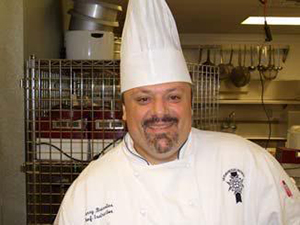 Le Cordon Bleu College of Culinary Arts in Los Angeles, Pasadena, Calif., is mourning the loss of a beloved educator. Chef instructor Larry Bressler, 50, and his wife, Denise, 64, passed away on Oct. 13, 2014. Bressler was a longtime instructor and friend to many at Le Cordon Bleu, known as a kind, fun-loving person with as much passion and zest for music as he had for food. He was also the general manager of Chefs Center, a commercial kitchen-rental space that helped launch many successful local businesses. From 1995 to 2003, Bressler was chef and owner of 50-seat Gerard’s, a French bistro in Riverside.
Le Cordon Bleu College of Culinary Arts in Los Angeles, Pasadena, Calif., is mourning the loss of a beloved educator. Chef instructor Larry Bressler, 50, and his wife, Denise, 64, passed away on Oct. 13, 2014. Bressler was a longtime instructor and friend to many at Le Cordon Bleu, known as a kind, fun-loving person with as much passion and zest for music as he had for food. He was also the general manager of Chefs Center, a commercial kitchen-rental space that helped launch many successful local businesses. From 1995 to 2003, Bressler was chef and owner of 50-seat Gerard’s, a French bistro in Riverside.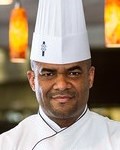 Two chefs have joined the ranks of an elite group of Certified Master Chefs (CMC) following an eight-day exam from Oct. 26 to Nov. 2. The new Certified Master Chefs are:
Two chefs have joined the ranks of an elite group of Certified Master Chefs (CMC) following an eight-day exam from Oct. 26 to Nov. 2. The new Certified Master Chefs are: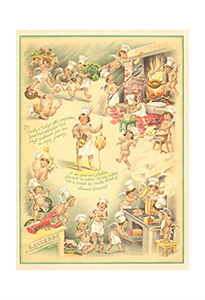 The Culinary Institute of America has partnered with Cool Culinaria to bring the CIA’s extensive collection of more than 30,000 menus to new audiences in the form of archival prints, notecards, coasters, mugs, tea towels, placemats and other products.
The Culinary Institute of America has partnered with Cool Culinaria to bring the CIA’s extensive collection of more than 30,000 menus to new audiences in the form of archival prints, notecards, coasters, mugs, tea towels, placemats and other products.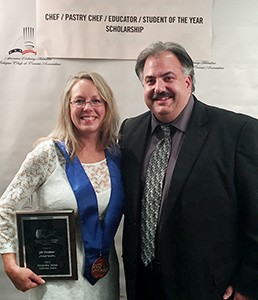 A student and an instructor from Baker College of Port Huron Culinary Institute of Michigan (CIM) have each received a major award from the Michigan Chefs de Cuisine Association (MCCA), a chapter of the American Culinary Federation (ACF) serving the southeastern part of the state.
A student and an instructor from Baker College of Port Huron Culinary Institute of Michigan (CIM) have each received a major award from the Michigan Chefs de Cuisine Association (MCCA), a chapter of the American Culinary Federation (ACF) serving the southeastern part of the state.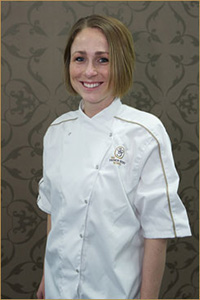 Armed with a degree in business, Katie Veile decided not to let her student loans stand in the way of pursuing her lifelong passion at The French Pastry School.
Armed with a degree in business, Katie Veile decided not to let her student loans stand in the way of pursuing her lifelong passion at The French Pastry School. 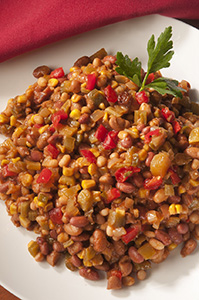 Vegetarianism—and its many variations—is a way of life for a growing number of Americans. Students, thus, should learn to prepare vegetarian and vegan dishes that entice and excite even those customers who enjoy meat. To that end, Chef Zonka shares her first-week lesson plan in a vegetarian-cuisine course.
Vegetarianism—and its many variations—is a way of life for a growing number of Americans. Students, thus, should learn to prepare vegetarian and vegan dishes that entice and excite even those customers who enjoy meat. To that end, Chef Zonka shares her first-week lesson plan in a vegetarian-cuisine course. Chef John Zehnder’s newest cookbook includes the most-requested recipes from the most-frequented restaurant in the United States.
Chef John Zehnder’s newest cookbook includes the most-requested recipes from the most-frequented restaurant in the United States.